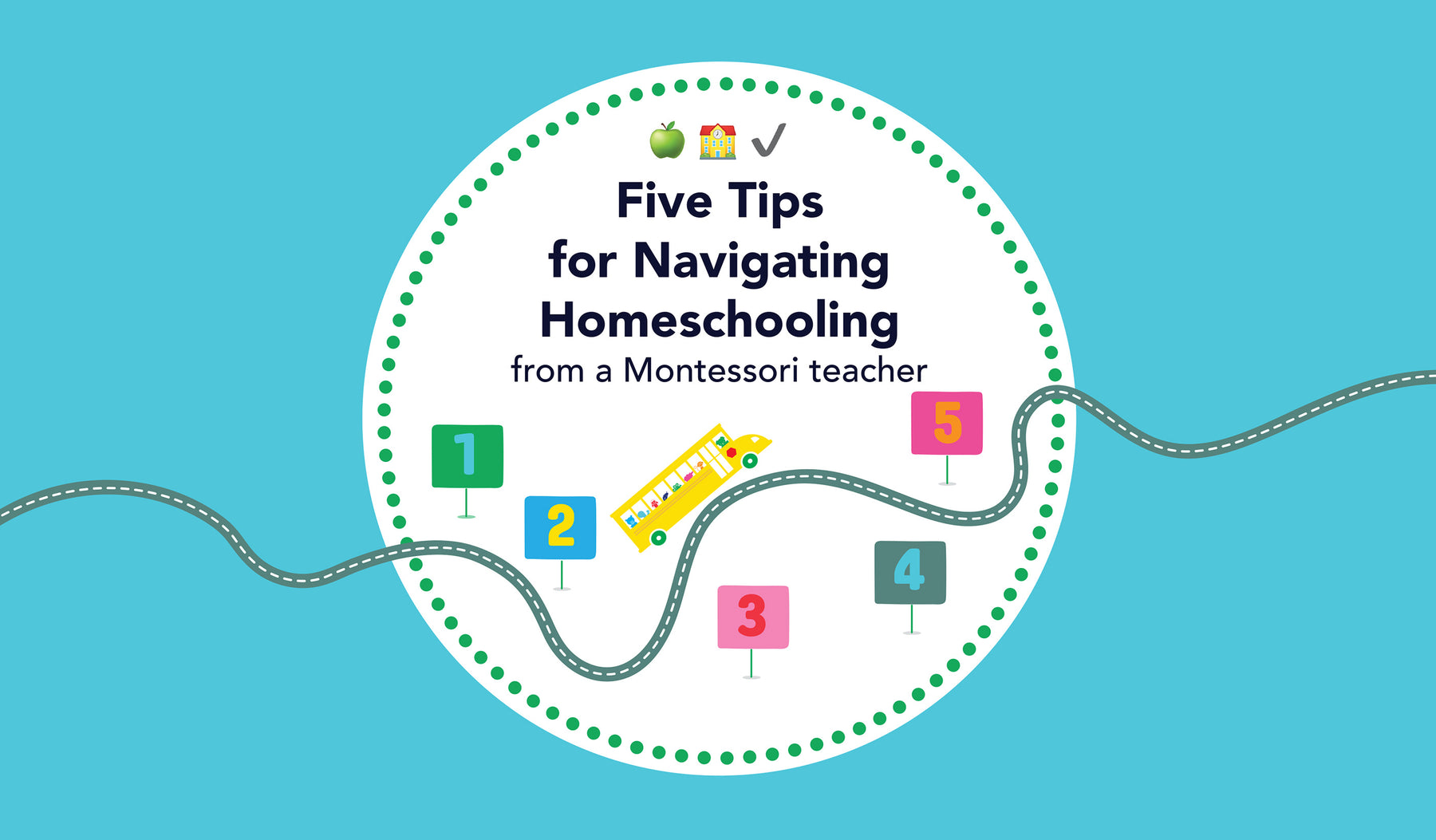Five Tips from a Montessori Teacher for Navigating Homeschooling
How to help your child during this unpredictable time.

Like everyone else, all of us at Primary are learning to adapt to the changes that have shifted our everyday routines in response to COVID-19. As we've been working from home, some of us with kids of our own whose schools are closed, we've been thinking about the best ways we can help parents and caregivers adjust to this new normal. Kerry Grove, elementary Montessori teacher and friend of Primary, is here to offer tips for how to best help your child during this time. Here are five great tips, based in Montessori practice:
1. Create a "sequence of the day."
There are so many helpful schedules floating around the internet right now, but for kids, routines don't have to be so time dependent — they should just be familiar and predictable sequences. Instead of restricting activities to concrete hours, establish them according to times of day like morning, afternoon, and evening. This way, they'll know what their options are within those routines and still have agency over what they choose to do and when. For instance, a morning routine might look like this: wake up, get dressed, have breakfast with Mommy and then choose a quiet activity like drawing, playing with blocks, or reading a book.
2. Set up a "dedicated work cycle."
With the age of your child in mind, make developmentally appropriate activities and tools accessible, so that they can take them out and put them away without your help. It's helpful to set parameters around how many things should be taken out at once, so that your child doesn't get overwhelmed in their space (and you're not left with a mess!). Montessori work cycles are rarely silent — but calm, focused, and productive. For example, for a preschooler, set a puzzle, a basket of blocks and a pitcher of water with a cup out (so they can practice pouring). For an older child, help them set up a simple science experiment, along with a language worksheet and math worksheet. Model with your own actions that during work cycle, you're all working on something.
3. Have everyone in the family make a quiet nook for themselves.
We know many homes are not designed to serve as workspaces for parents, schools and places for childcare. During this time, allow yourself to carve out a piece of your home thats just yours and encourage your child to do the same. These are created so everyone can have a soft place to land during these chaotic times, and teach families how to respect each other's space and boundaries. Have your child build a fort and stock it with their favorite soothing items: a pillow, a stuffed toy, books, and maybe even a special light. When you need a breather, go to your nook and articulate clearly when others are in theirs ("Daddy's in his chair. That means he needs his quiet space!"). If you model, kids will start to do the same.
4. Include kids in "practical life activities."
Kids want to mimic the real world and help in tangible ways. When kids feel like their contributions are meaningful, that provides a sense of control, which in turn helps them feel safe (and hopefully reduces tantrums!). Include them in the structure of the daily household by having them participate in activities like folding laundry, matching socks, watering the plants, sorting spoons and forks, and dusting. Not only will this teach them a skill, it will be a huge help for you! Model how you want the task to be done and provide your child the tools to be able to do it independently, depending on their age. For example, for a two-year-old, take out all the socks from the laundry to make them accessible, and then show them how to match. A six-year-old might already how to pick out all the socks, and won't need your help there.
5. It is 100% okay for kids to feel bored sometimes.
Seriously, you're doing great! This is an unpredictable time so be forgiving of yourself — you're not your child's teacher or entertainer, after all. Your child is capable of doing tasks independently and navigating the emotions that come with sharing an adult at school, and although it make look different, they can do that at home too. Kids are wired to play and learn, and you don't need to dictate what they do. Allow them space and time to make choices, be creative, and adjust to this new normal. Hang in there! And always remember you can retreat to your nook. :-)
What would you add? Share your advice or tips with us on Instagram — we can't wait to hear.
Tagged with:
More from Parenting
View all posts-
 Translation missing: en.blogs.article.posted_in Parenting
Translation missing: en.blogs.article.posted_in Parenting25 Great Questions to Ask at the Thanksgiving Kids' Table
-
 Translation missing: en.blogs.article.posted_in Parenting
Translation missing: en.blogs.article.posted_in ParentingFabric Feature: What Does It Mean to Be GOTS Certified Organic?
-
 Translation missing: en.blogs.article.posted_in Parenting
Translation missing: en.blogs.article.posted_in Parenting100 Things to Fill Your Heart with Love


